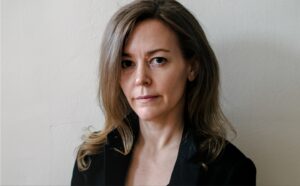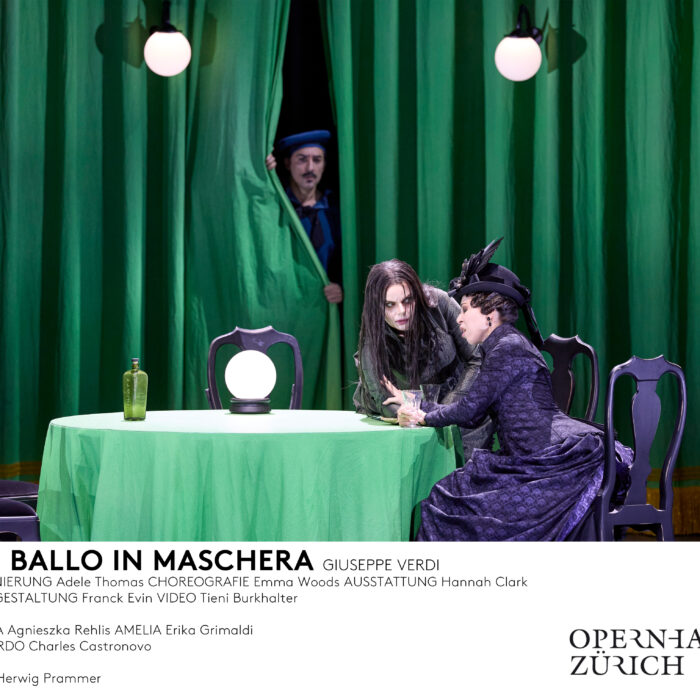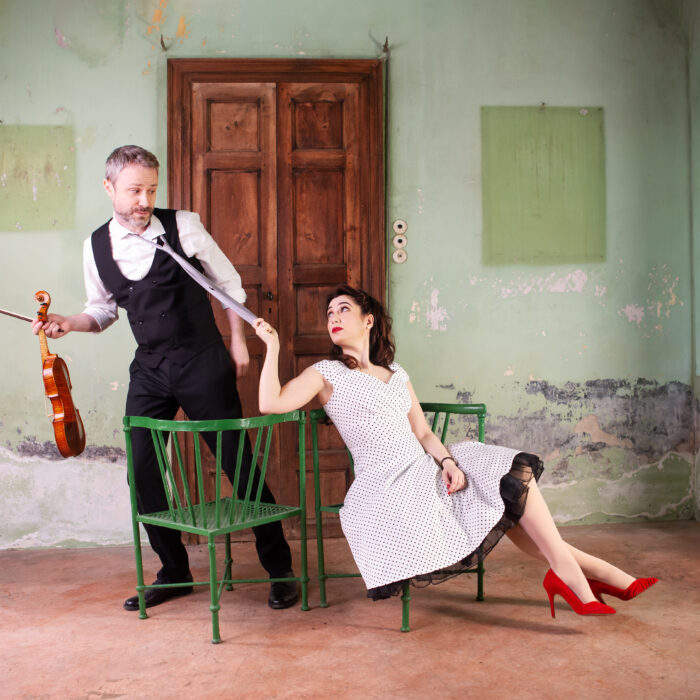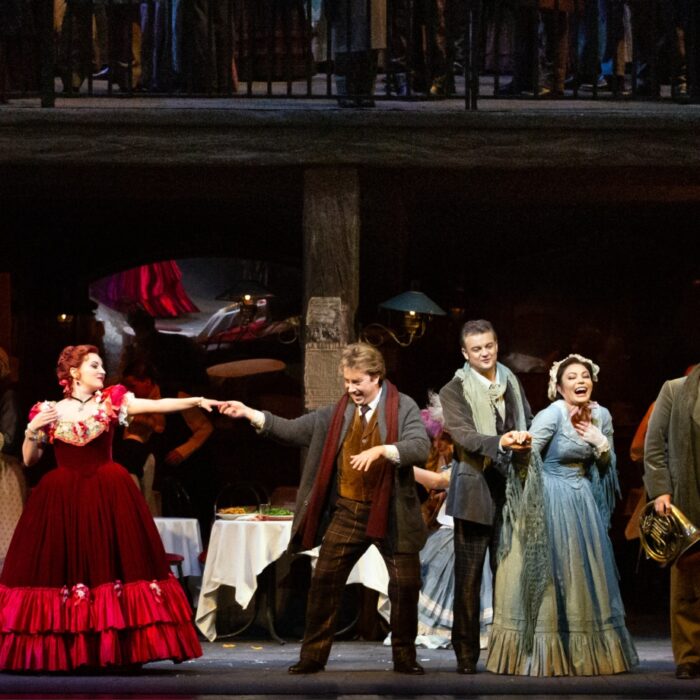
Metropolitan Opera 2023-24 Review: La Bohème
A Spectacular Cast Bonds Together & Revives Puccini’s Opera
By Jennifer PyronPhoto: ©Met Opera press
Metropolitan Opera is presenting Puccini’s “La Bohème” with set designs by the masterful Franco Zeffirelli for its 2023-24 season run with a total of 18 performances which began on October 10th, continuing through January 3, 2024.
The season opener marked the 1,347th performance at the opera house, and in order to not get lost in the mix, stakes were high for this new season’s cast to be a knockout.
Carlo Rizzi Honors Puccini’s Score
Last year’s production of “Bohème” at the Met was an outstanding run thanks to music director Yannick Nézet-Séguin’s invigorating conducting performances. Conducting this most beloved and familiar opera for his first time in house, audience members experienced Puccini’s music through Nézet-Séguin’s lens of exhilarating passion, sensitivity and flair. He immensely raised the bar then, and while he does not conduct this season’s run of “La Bohème,” his brilliant work continues to make a positive difference at the helm as music director.
For this year’s production, Italian conductor Carlo Rizzi leads the way– and he is an interesting choice. His Met performances for last season, including “Medea,” “Tosca,” and “Don Carlo,” were met with anticipated reviews, so it’s not surprising to mention how one might feel about him being in the hot seat for “La Bohème.” However the result of his performance, honoring Puccini’s score by attuning his focus solely on the music, would surely be the best route for him to take. And he did just that.
Rizzi’s interpretation of Puccini on opening night was nothing new. In fact, and this is a good thing, he adhered to the score as his only blueprint to follow. He left no room for additional interpretations to get in the way of Puccini’s framework, the nuanced details that brilliantly capture human emotionality through love and loss. In “La Bohème” there is no villain, only love. There is no heaven, only loss. And Rizzi allowed Puccini’s music to illuminate this as the ultimate truth.
The Met Opera Orchestra under Rizzi’s direction sounded surefooted in their sumptuous journey throughout Puccini’s score. For once, there was even enough space for the harpist to be heard! The most delicate of all instruments filled the Met’s house and plucked at the heartstrings of listeners. The string section as a whole was also genuinely warm and lustrous in their sound. Together they embodied a brilliant tide of sorrow and sadness that was overwhelmingly haunting. One might have touched their own face to feel tears falling without even knowing it. Their swelling sounds pulsed and carried the weight of Puccini’s remorse– an inescapable crushing reality lingered…
Powerful Divas
Ukrainian soprano Olga Kulchynska as “Bohème’s” Musetta is a highly anticipated highlight of this season. She also makes her role debut as Liù in the Met’s “Turandot” beginning May 29, 2024. Both operas are not to be missed. Kulchynska’s voice rattles the soul of listeners. So much so, that one might declare her to be the greatest impact of the night. Musetta’s role in “La Bohème” does not carry the same amount of expectations as Mimì. Instead, the soprano must make their mark immediately out of the gate in Act two with “Quando m’en vo.” This aria determines more than meets the eye, and for Olga Kulchnska it determined her historical moment at the Met.
Kulchynska’s voice soared as she sang above the orchestra pit. Her vocal agility and dynamism unwavered in its prowess during “Musetta’s Waltz,” continuing in this same vein for the remainder of the night. She adhered to Musetta’s charm, but what made Kulchynska most unique was in her response to Mimì. All throughout the opera, she portrayed Musetta as a most beloved female companion to Mimì. In Act four, Kulchynska was especially besotted with heartbreak. One might have felt the incomprehensible depth of personal awareness surrounding this opera and how Kulchynska connected most with portraying a voice unafraid to look away in even the most dire moment of human suffering. It was quite clear that Olga Kulchynska’s soul was speaking for her the entire night. One could not help but be incredibly moved and inspired through her performance. She was riveting.
One can only imagine her voice as Liù in “Turandot.” Stay tuned!
Italian Soprano Federica Lombardi as Mimì was in her element as she impeccably enunciated Luigi Illica and Giuseppe Giacosa’s libretto. Her native language sounded beautiful on the tip of her tongue and blossomed fully in her voice’s potential throughout the night. Lombardi’s voice is rich, exuding fluidity and precision at the same time. “Sì, mi chiamano Mimì” sounded pure and refreshingly innocent as Lombardi sang. Her voice delved into the relatable emotions of love, hope, pain and suffering in her role. The audience was absolutely captivated whenever she was on stage. There was also a special chemistry between her and the other cast members. This was not the voice of a victim. Instead, Lombardi leveraged Mimì as a relatable human being simply telling her own story, living her own honest life. A character in an opera that anyone from any background might connect with and feel that sense of urgent human connection through her voice.
Lombardi‘s performance also very intelligently landed well with Rizzi’s conducting. In this way, “La Bohème” exuded a revived sense of human awareness through the music and singing. Lombardi lead the way for cast members to sustain this same level of connectivity in the difficult moments to come.
“Donde lieta uscì” in Act three marked a major turning point in the opera and Lombardi was well prepared. Her voice was revelatory! The essence of Mimì’s internal resolve at this point was remarkably portrayed through Lombardi. She sang with a lightness of spirit and a darkness of her character’s own failing health. Lombardi’s very simple gestures and keen knowing of her own physical presence during this turning point were astounding. It was in this moment that one might have began to hold their own breath, awaiting Lombardi’s performance during Mimì’s dying scene in Act four.
Empathetic Men
Czech bass-baritone Adam Plachetka as Marcello brought levity and delight to the stage through his performance. Plachetka’s voice was robust and his smile melted hearts. His Marcello radiated youth and carefree longevity as he sang with a real sense of joy. The typical back and forth banter between Marcello and Rodolfo in Act one felt natural and untried. There was a playfulness in the air. Plachetka leaned into this arising and invigorating atmosphere without looking back. He embodied the purpose of Marcello’s character by being remarkably humble and gentle. It would not come as a surprise later in the opera when Mimì felt comfortable enough to ask Marcello for his assistance when looking for Rodolfo.
Adam Plachetka’s potential as an actor is unlimited because of how intentionally focused he was in his delivery at every moment. He was driven by his intuition and not his ego. One might have easily felt this from the very beginning. His voice and acting invited audience members to participate with him in his experience. He really wowed the audience, and this showed especially when he received several colorful bouquets of flowers and a standing ovation at the curtain call. Plachetka is somebody who anybody can love. His voice is unforgettable in this way.
American tenor Matthew Polenzani as Rodolfo was a supportive and uplifting companion to Federica Lombardi’s Mimì.
The amount of sensitivity and artistry that Polenzani emanated all throughout “La Bohème” is sure to fuel the success of subsequent shows. One might have felt a sense of relief as Polenzani performed with Lombardi, especially during Acts one and four. He is someone who “gets it.” Rodolfo’s role is designed to mirror Mimì’s love and loss, and this he did exceedingly well. Polenzani’s voice glided alongside Lombardi’s savory moments, acting as though hand-in-hand these two lovers would be knockout together in real life. One should definitely have tissues in hand when experiencing this in action!
Polenzani’s “Che gelida manina” was like a magical night sky full of twinkling lights and infinite bliss. His voice unlocked something deep within that any listener could feel. This is a person who clearly and consciously loves to sing and shows up on stage because their heart has led them there.
A League of His Own
American bass-baritone Christian Van Horn as Colline was in a league of his own. Yes, he had excellent stage chemistry with the entire cast and never made any moment about himself. But, there is something so special about Van Horn naturally as a performer, that his star quality ignites when he is on stage and cannot be overlooked. Christian Van Horn’s presence is like a beacon of light that cannot be put into a box.
His aria “Vecchia zimarra, senti” is about the shedding of past lives, in love and loss, and while Van Horn’s voice sounded brilliant as he sang it, one could not help but want to hear more of him, and in a much grander version of this role or of one completely different, more intense. If this is someone’s first time to experience Christian Van Horn live, they are in for a surprise awakening. Colline continues to shine this year thanks to Van Horn!
More Stellar Cast Highlights
American baritone Sean Michael Plumb as Schaunard was jovial and a perfect member of this season’s cast. His voice is full of life and character as he sings. His eyes glistened and his facial expressions matched the tone. Plumb recently debuted at the Met last year, 2022, as Harlekin in “Ariadne auf Naxos” led by Marek Janowski. He is definitely a singer on the rise!
Scottish baritone Donald Maxwell performs both roles as Benoit and Alcindoro. Maxwell is a true Met Opera member of the family, in that his performance in these roles feels both nostalgic and satiating. Maxwell’s personality is a vast array of comedic relief and one could only hope to be friends with him in real life someday. He is a treasure to always be honored in opera.
Act four in its entirety is where this cast made the greatest impact. From the opening scene with Rodolfo and Marcello reflecting on their past loves, all the way to the final resounding B-minor chord signaling Mimì’s death. This cast bonded together and delivered a most memorable production. Carlo Rizzi’s direction was like a gentle guiding force leading the way towards a finer and lighter resolve surrounding death. Mimì and Musetta’s soul stirring voices were still fresh on the minds and hearts of audience members.
In Act four, there was no need to pretend heaven existed, when the friends that bonded together in this final scene were as full of unconditional love as this cast so clearly was. From here, Puccini’s score lifted into the Met Opera’s house and one might have felt their arm hairs raise in knowing– this too shall pass.



